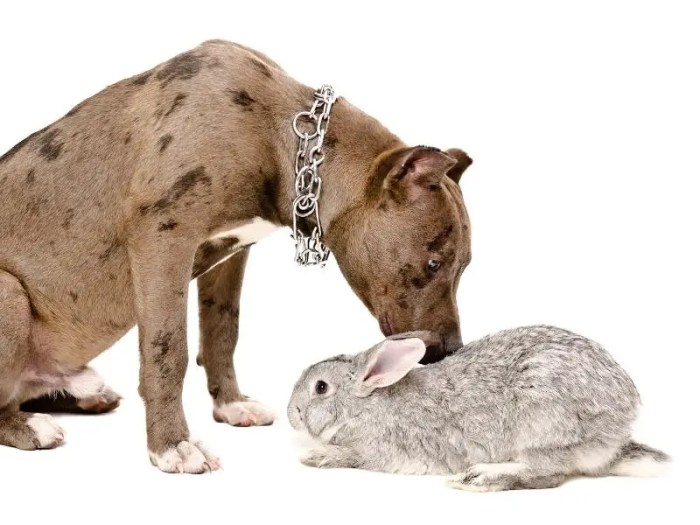Rabbits are adorable and affectionate creatures, but potential rabbit owners may wonder, “Do rabbits smell?” The answer is yes, but the extent and nature of the odor can vary depending on several factors. This comprehensive guide will delve into the anatomy and physiology of rabbits, the different types of odors they produce, common causes of rabbit odor, and effective odor management strategies.
Understanding the factors that contribute to rabbit odor is essential for maintaining a healthy and pleasant environment for both the rabbit and its human companions. By addressing underlying health issues, providing a nutritious diet, and maintaining a clean living space, rabbit owners can effectively minimize odor and ensure the well-being of their furry friends.
Rabbit Anatomy and Odor Production
The anatomy of rabbits plays a significant role in their odor production. Rabbits have a unique digestive system that includes a large cecum, where bacterial fermentation occurs. This fermentation process produces gases and volatile compounds that contribute to their characteristic odor.
Various factors influence the production of odors in rabbits. Their diet is a primary factor, with certain foods, such as leafy greens and vegetables, producing more odorous compounds than others. Environmental factors, such as temperature and humidity, can also affect odor production, as rabbits tend to produce more odors when they are stressed or uncomfortable.
Health Factors
The health of a rabbit can significantly impact its odor production. Illnesses, infections, and dental problems can all contribute to increased odor. It is essential to ensure that rabbits receive regular veterinary check-ups and proper care to maintain their health and minimize any potential odor issues.
Types of Odors Produced by Rabbits
Rabbits produce various types of odors, each with unique characteristics and potential causes.
Urine Odor
- Intense, pungent smell
- Persists for extended periods
- Caused by metabolic waste products and territorial marking
Fecal Odor
- Mild to moderate smell
- Less persistent than urine odor
- Caused by undigested food and bacteria in the droppings
Sweat Odor
- Subtle, slightly musty smell
- Produced by glands located on the paws and ears
- Released during grooming, heat regulation, and stress
Scent Gland Odor
- Strong, musky smell
- Produced by scent glands located on the chin, cheeks, and genital areas
- Used for marking territory, attracting mates, and identifying individuals
Common Causes of Rabbit Odor
Rabbit odor can arise from various factors, including improper diet, unsanitary living conditions, and health problems. Addressing these underlying causes is crucial for mitigating unpleasant odors and ensuring the well-being of your rabbit.
Improper Diet
A rabbit’s diet plays a significant role in its overall health and odor production. A diet deficient in hay, fresh vegetables, and water can lead to gastrointestinal issues, resulting in foul-smelling feces and urine. Excessive consumption of sugary treats or fruits can also contribute to digestive problems and odor.
Unsanitary Living Conditions
Unsanitary living conditions are another major contributor to rabbit odor. Rabbits require a clean and well-maintained environment to prevent the buildup of bacteria and unpleasant smells. Dirty litter boxes, soiled bedding, and insufficient ventilation can all contribute to odor.
Health Problems
Certain health issues can also lead to increased odor production in rabbits. Dental problems, such as overgrown teeth or abscesses, can cause excessive drooling and foul breath. Urinary tract infections or kidney disease can result in strong-smelling urine, while respiratory infections can produce a distinctive odor.
Managing Rabbit Odor
Effectively managing rabbit odor is essential for maintaining a healthy and comfortable environment for both the rabbit and its owners. By addressing the underlying causes and implementing appropriate measures, you can significantly reduce unpleasant smells and ensure the well-being of your furry friend.
Maintaining a Clean Environment
Regularly cleaning your rabbit’s enclosure and accessories is crucial for odor control. Remove waste materials daily, and thoroughly clean the cage with a rabbit-safe disinfectant at least once a week. Additionally, provide a litter box filled with odor-absorbing materials, such as hay or litter pellets, and change it frequently.
Providing a Healthy Diet
A balanced and nutritious diet can help reduce odor production. Feed your rabbit a high-quality hay-based diet, supplemented with fresh vegetables and a limited amount of pellets. Avoid feeding sugary treats or excessive amounts of fruits, as these can contribute to digestive issues and odor.
Addressing Underlying Health Issues
Certain health conditions, such as urinary tract infections, dental problems, or digestive disorders, can lead to unpleasant odors. If you notice any changes in your rabbit’s behavior or appearance, such as excessive urination, drooling, or diarrhea, seek veterinary attention promptly.
Summary

In conclusion, while rabbits do produce odors, these odors can be effectively managed with proper care and attention. By understanding the causes of rabbit odor and implementing appropriate odor management strategies, rabbit owners can enjoy the companionship of their beloved pets without unpleasant scents.
Remember, a healthy rabbit is a happy rabbit, and a happy rabbit is less likely to produce strong odors.
Questions and Answers
Can rabbits be litter trained?
Yes, rabbits can be litter trained, making it easier to manage their odor. Provide a designated litter box filled with appropriate litter material and regularly clean the box to encourage proper litter box usage.
How often should I bathe my rabbit?
Rabbits do not require frequent bathing, as excessive bathing can remove essential oils from their fur. Bathe your rabbit only when necessary, using lukewarm water and a gentle, rabbit-specific shampoo.
What foods contribute to rabbit odor?
Certain foods, such as vegetables high in sulfur (e.g., broccoli, cabbage), can contribute to rabbit odor. Limit these foods in your rabbit’s diet or provide them in moderation.